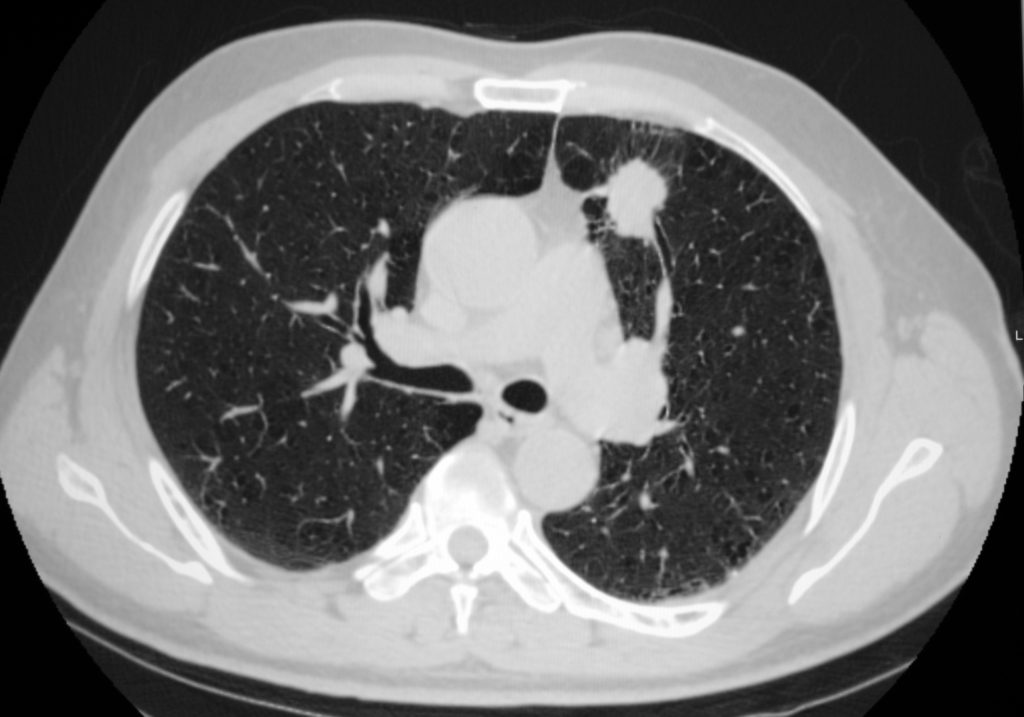Listen to the full episode The Healthtech VC podcast on Apple Podcasts here and on Spotify here.
On the second episode of The Healthtech VC, Dr. Fiona Pathiraja meets fellow former radiologist Dr Lizzie Barclay, who is medical director of Aidence, an Amsterdam based healthtech start-up creating innovative AI that helps radiologists in the diagnosis of lung cancer.
Lizzie started her career in medicine as an NHS radiologist and after working on the frontline for a number of years, she decided her future lay outside the NHS, leading to her role at Aidence. Fiona and Lizzie discuss the role of AI in the future of healthcare, how Aidence co-create tech solutions with radiologists and how Lizzie is trying to involve patients in the work that Aidence are doing.

What is Aidence and how is it helping early detection of lung cancer?
After leaving frontline clinical radiology, Lizzie decided to take her skills and training into the healthtech space, and instantly felt an affinity with Aidence.
As an ambitious new startup, Aidence creates innovative AI technology that helps radiologists in detecting, quantifying and reporting on lung nodules present on CT scans. This enables early diagnosis of lung cancer. Lizzie cites Aidence’s mission and purpose as one of the biggest reasons for joining the organisation. “Aidence has a clear and narrow focus,” she explains, and highlights the team’s family-feel as an aspect she most enjoys.
Aidence has recently been awarded the The Artificial Intelligence Award, which is an award scheme run by the Accelerated Access Collaborative (AAC) in partnership with NHSX and the National Institute for Health Research (NIHR). The programme is making £140 million available over three years to accelerate the testing and evaluation of the most promising AI technologies which meet the strategic aims set out in the NHS Long Term Plan.
The programme is helping innovative AI tools, like those created by Aidence, become clinically validated and will also support the deployment of AI technologies on a larger scale within the NHS. Lizzie explains how Aidence will work on three validation studies as part of this programme: one in lung cancer screening setting and two in routine radiology settings.
“It’s a really exciting programme. The government has invested to get products like Aidence to be adopted widely across the NHS. Essentially, the aim is to achieve wide adoption of AI but also validate those solutions from a clinical perspective.”
The future of AI in healthcare
Fiona and Lizzie touch on the current healthcare landscape and how many healthtech companies, including Aidence, have recently shifted their efforts to try and help out during the pandemic. Aidence has recently focused on collecting anonymised lung scans from patients with COVID-19, which have then been used to create an AI support system for diagnosis.
Beyond COVID, Lizzie sees an exciting future for AI in healthcare and believes it has a firm place in an integrated healthcare system. “Clinicians, researchers and the public all need to appreciate the role of AI”, explains Lizzie. She touches on how her experience working as a radiologist means she is able to advise her team on creating solutions that have a genuine impact and benefit for clinicians. Passionate about patient advocacy, Lizzie has invited patients to visit the Aidence offices to see the work they do and also accompanied patient advocacy groups to the European Parliament.


